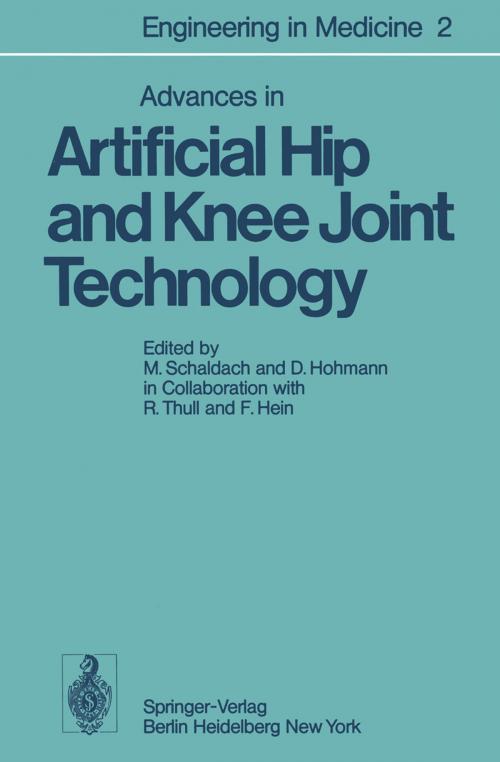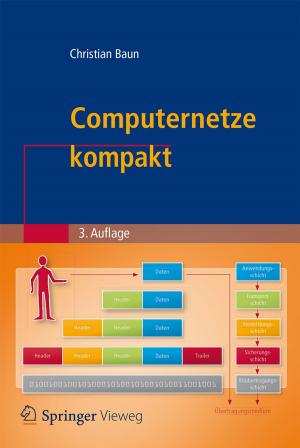Advances in Artificial Hip and Knee Joint Technology
Volume 2: Advances in Artificial Hip and Knee Joint Technology
Nonfiction, Health & Well Being, Medical, Surgery, Science & Nature, Technology, Engineering| Author: | R. Thull, F. Hein | ISBN: | 9783642663697 |
| Publisher: | Springer Berlin Heidelberg | Publication: | December 6, 2012 |
| Imprint: | Springer | Language: | English |
| Author: | R. Thull, F. Hein |
| ISBN: | 9783642663697 |
| Publisher: | Springer Berlin Heidelberg |
| Publication: | December 6, 2012 |
| Imprint: | Springer |
| Language: | English |
Implantable jOint prostheses which have been under development for more than 25 years, are today being used with success in the rehabilitation of many cases, including patients with extremely severe joint pathology. However, artificial joint designs still pose problems with respect to their function, anchoring, materials employed and the interaction of the prosthesis with the surrounding biological tissues. Some of these problems are associated with considerable therapeutic complications. Further improvement in the artificial joint requires the application of all the modern experimental and research techniques and the close cooperation of medical doctors, engineers and scientists. The International Symposium on Advances in Artificial Hip and Knee Joint Technology held at Erlangen on October 30 and 31, 1975 under the auspices of the Societas Physica Medica Erlangensis, had as its aim the promotion of just this interdisciplinary cooperation. One of the traditional objectives of the Societas has been the advancement of diagnosis and therapy by the adaptation of medical skill to modern technology and scientific engineering concepts. The major objective of this volume is to present, in expanded form, the lectures given by internationally recognized scientists and clinical researchers in the field of artificial joints in the locomotor system, and to make that information available to a wider public. The experience discussed covers the principles and primary methods of joint replacement.
Implantable jOint prostheses which have been under development for more than 25 years, are today being used with success in the rehabilitation of many cases, including patients with extremely severe joint pathology. However, artificial joint designs still pose problems with respect to their function, anchoring, materials employed and the interaction of the prosthesis with the surrounding biological tissues. Some of these problems are associated with considerable therapeutic complications. Further improvement in the artificial joint requires the application of all the modern experimental and research techniques and the close cooperation of medical doctors, engineers and scientists. The International Symposium on Advances in Artificial Hip and Knee Joint Technology held at Erlangen on October 30 and 31, 1975 under the auspices of the Societas Physica Medica Erlangensis, had as its aim the promotion of just this interdisciplinary cooperation. One of the traditional objectives of the Societas has been the advancement of diagnosis and therapy by the adaptation of medical skill to modern technology and scientific engineering concepts. The major objective of this volume is to present, in expanded form, the lectures given by internationally recognized scientists and clinical researchers in the field of artificial joints in the locomotor system, and to make that information available to a wider public. The experience discussed covers the principles and primary methods of joint replacement.















